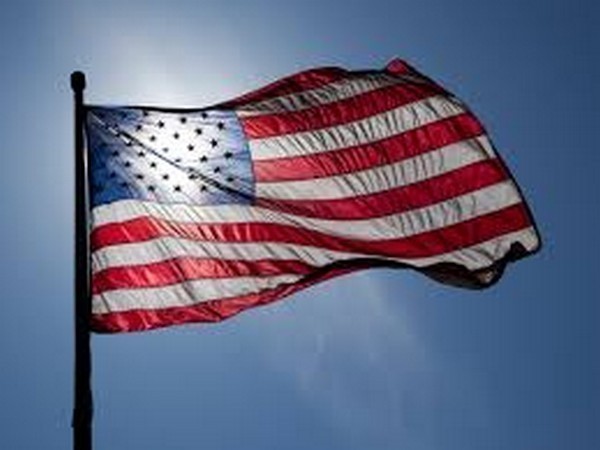Columbia students defy deadline to disband pro-Palestinian encampment
Apr 30, 2024
New York [USA], April 30: New York City's Columbia University has begun suspending students involved in a pro-Palestinian protest on campus after they defied a deadline to disperse.
College leaders earlier warned those failing to disband from the two-week encampment by 14:00 EST (1800 GMT) on Monday would face disciplinary action.
But as the deadline passed, dozens of students rallied at the site.
Similar demonstrations have spawned across the US since police cleared another camp at Columbia this month.
Pressure on the leadership of the elite Ivy League university in Upper Manhattan has been building to act or step aside.
"What continues to transpire at Columbia is an utter disgrace," US House of Representatives Speaker Mike Johnson wrote on X, formerly Twitter. "The campus is being overrun by antisemitic students and faculty alike."
"There must be consequences," the Louisiana Republican added, calling on the university's president, Nemat Shafik, to step down.
"For the past week, this encampment has been the breeding ground for antisemitic attacks on Jewish students," the 21 lawmakers wrote. "The time for negotiation is over; the time for action is now."
The New York university has become the focal point of the country's debate over the war in Gaza and US support for Israel, as well as fears that antisemitism is putting Jewish students in danger.
On 18 April, police raided a pro-Palestinian encampment in the centre of campus and arrested more than 100 students.
But activists redoubled their efforts, regrouping into another encampment and prompting university leadership to move to hybrid learning.
Over the weekend, the university denied rumours of "an impending lockdown or evictions on campus" and told students it had no plans to bring back police "at this time".
On Monday morning, Dr Shafik said in a statement that "since Wednesday, a small group of academic leaders has been in constructive dialogues with student organizers to find a path that would result in the dismantling of the encampment".
"Regretfully, we were not able to come to an agreement," she said.
In a letter circulated to encampment organisers, the college warned it "will need to initiate disciplinary procedures because of a number of violations of university policies".
Students were instructed that if they voluntarily left the protest by 14:00 local time they would be allowed to complete their semesters.
Those who do not will be unable to finish the term and will be temporarily barred from campus, with those scheduled to graduate no longer eligible to do so, college authorities said.
Columbia Students for Justice in Palestine, one of the main groups involved, vowed to defy the order in a post on X and called on activists to "protect the encampment".
"Do not sign anything with administration," the group wrote.
As the afternoon deadline came and went, the encampment - a cluster of tents on the Morningside campus - remained.
Student supporters gathered at and marched around the site, some banging drums and chanting: "Revolution!"
What do student protesters at US universities want?
Many wore face coverings, telling the BBC they were worried about being recognised and facing recrimination - though the university wrote in its Monday letter that it had already identified several participants.
Guarding them at the entrance of the encampment was a human chain of staff and faculty members in orange-and-yellow vests, locking arms with each other to prevent entry.
Meanwhile, police seen carrying zip ties and setting up barricades on campus remained on standby, apparently without any orders to make arrests or attempt evictions.
In a media briefing, the university's vice president of public affairs confirmed it had begun suspending students, partly to avoid any disruption to upcoming graduation ceremonies.
As Columbia administrators grapple with how to respond, the protest there has sparked similar demonstrations by students across the country.
The BBC is tracking protests or encampments on campuses in at least 22 other states and Washington DC.
Police moved in on Monday to dismantle an encampment at the University of Texas at Austin after officials said protesters had ignored directions to take down their tents.
The college said in a statement that "baseball size rocks" had been found in the encampment and the "majority of protesters are believed to be unaffiliated with the university".
Elsewhere, police at Virginia Tech arrested 91 people on trespassing charges on Sunday night, including 54 who are currently enrolled in the college.
Arrests were also made on Monday at the University of Georgia.
Many student protesters - who have called for a ceasefire in the Israel-Gaza war for months - are demanding the institutions they attend financially divest from any support for Israel.
In her statement on Monday, Dr Shafik said that while Columbia plans to explore a range of ideas to address student concerns, it "will not divest from Israel".
At the same time, amid alleged incidents of hate speech, harassment and threats of violence by some participants, Jewish students have voiced concern about their safety on campus.
"The world is watching as you continue to fail your Jewish students," congresswoman Elise Stefanik, a New York Republican, said, as she accused Columbia of "empty threats and weak leadership".
Other Republicans, including former President Donald Trump, have highlighted antisemitic chants and incidents at the protests.
The White House is walking an increasingly fine line over the campus protests, seeking to balance the right to peaceful protest with condemnation of hateful speech.
"It is a painful moment, we get that," press secretary Karine Jean-Pierre said.
Declining to say how university leadership should act, she added: "Free expression has to be done within the law."
Source: Fijian Broadcasting Corporation








